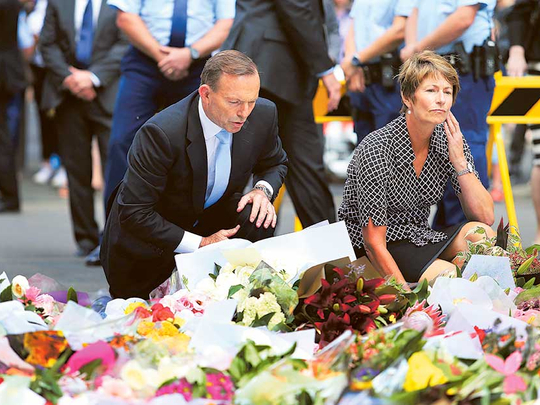
SYDNEY
Australia is one of the most peaceful, prosperous and law-abiding countries on Earth. Yet it is about to allow people who might commit terrorism to be held in prison - indefinitely.
Under changes introduced into federal parliament last month by Prime Minister Malcolm Turnbull’s center-right government, federal judges could stop prisoners being released after completing terrorism-related sentences. They wouldn’t need to set a release date, although the prisoners’ detention would be reviewed every year.
Judges would need to be convinced by the government that the man or woman was likely to mount some kind of new attack. There would be no new trial, although prisoners would have the right to argue in court that they aren’t a threat.
The change will upend a centuries-old legal principle that prisoners are automatically released when their sentences end. Even the United States, which has kept suspected terrorists in Guantanamo Bay, Cuba, without trial for over a decade, doesn’t allow prisoners on U.S. soil to be held after their sentences end.
“No other democracies in Europe or North America do this,” said Elaine Pearson, the director of Human Rights Watch in Australia, in an interview. “The definition of terrorism is pretty broad in Australia and includes the financing of terrorism and recruitment, which is one of the reasons we’re worried about this.”
The tough policy reflects a fear among Australians they face an attack like those in Orlando or Nice, France, inspired or directed by the Islamic State.
Still, the harsh measures suggest that the militant Islamic group’s theatrical executions of foreigners and terrorist attacks around the world are achieving one of its goals: to provoke harsh responses in the West that it hopes will fuel more violence between Muslims and non-Muslims.
Although they have a reputation for an easygoing friendliness, around 50 percent of the people in this predominately white, Christian nation want an end to all Islamic immigration, according to an Essential poll published in September. The figure was so high the polling company conducted a second poll to check it wasn’t a rogue result. It wasn’t.
That hostility helps explain the lack of opposition, let alone outrage, among ordinary and expert Australians to the tough new rules, experts say.
“Since Sept. 11 the unthinkable has not only become possible, it has become commonplace,” said George Williams, the dean of the University of New South Wales law school and author and editor of 34 books, including Human Rights Under the Australian Constitution, in an email.
Williams backs the change, even though he acknowledges it overturns what is regarded by many as a fundamental human right. “It is, in the circumstances, a necessary evil,” he said.
Australia’s strict gun laws, ocean borders and physical remoteness make it a tough target for terrorists. But it isn’t immune. In the past three years, there have been four violent incidents linked to the Islamic State, which the Royal Australian Air Force is attacking as part of the U.S. military campaign in Iraq and Syria.
Last month a 22-year-old man shouting “Allahu akbar” stabbed a man on a suburban street in a normally quiet part of Sydney. Suffering deep wounds to his hands and torso, the victim ran to a neighbor’s hairdressing salon and locked a sliding-glass door, which the man tried to break down, witnesses said.
When police arrived, he tried to attack them in the name of the Islamic State, according to police officials. The man is in custody on terrorism charges.
The detention without a new trial isn’t the only response planned by Australia’s attorney general, George Brandis, to the perceived threat. He plans to create a new crime of “advocating genocide” and allow teenagers as young as 14 to be subjected to court-ordered controls restricting who they can see and where they can go.
Those control orders, which can be applied to adults, aren’t enough to stop some people determined to create havoc, Brandis says. “There may be some circumstances where, even with controls placed upon them, the risk an offender presents to the community is simply too great for them to be released from prison,” he told the Australian parliament last month.
The changes are almost certain to be enacted. Both major political parties at the state and federal level have already agreed.












